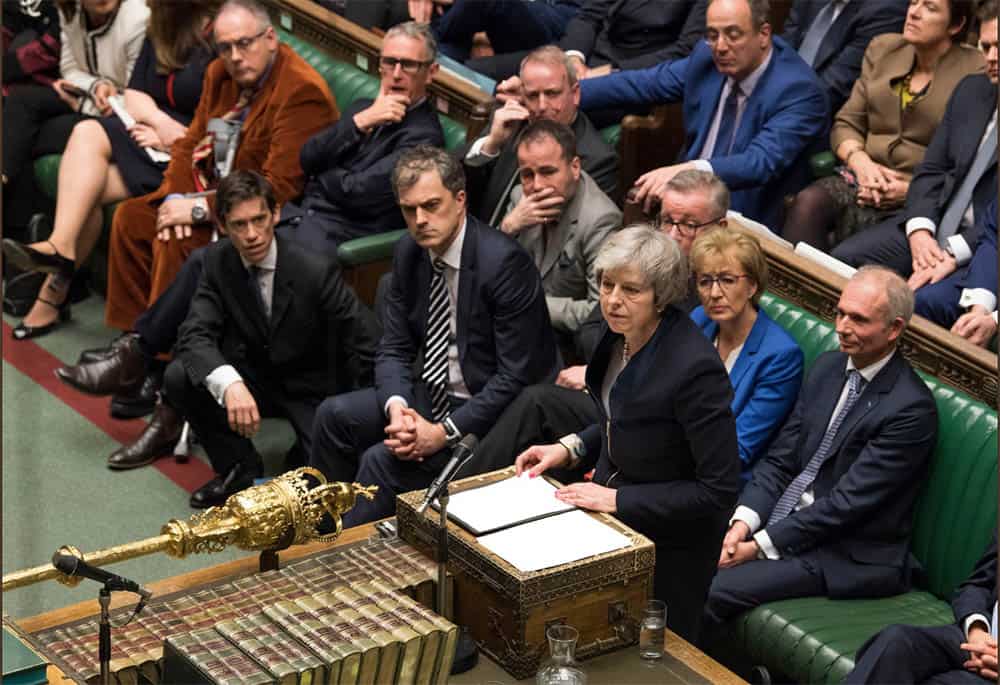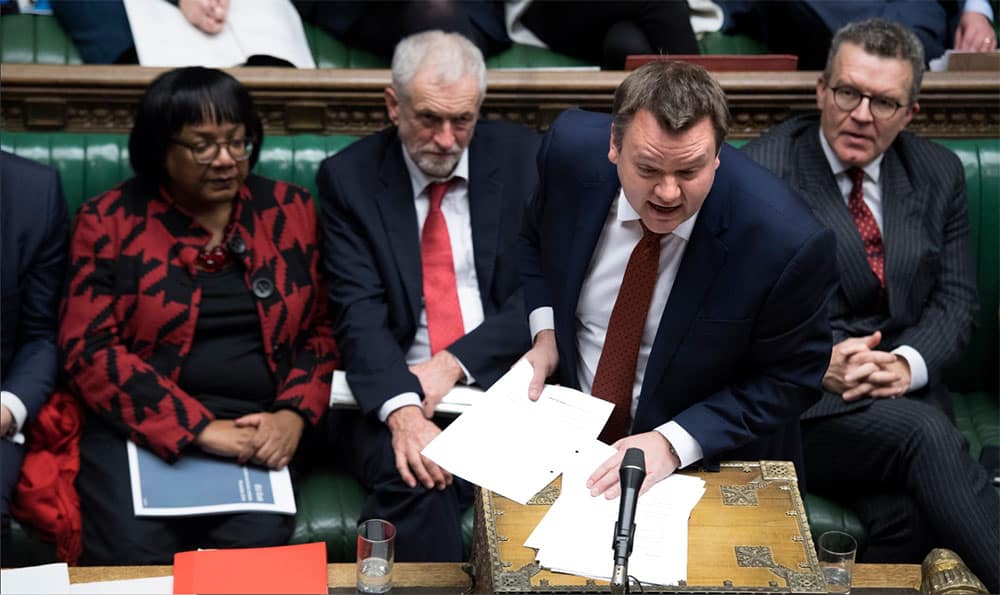“Uncertainty is bad for business” states BHTA after historic Brexit deal defeat in Parliament

Prime Minister Theresa May’s Brexit deal has been voted down in a historic and substantial defeat in the House of Commons, opening up a range of different potential outcomes and leading British business groups, including the British Healthcare Trades Association, to call for more certainty.
After over two years of negotiations with the EU, Theresa May’s Brexit deal – a compromised settlement that would bring about an orderly departure from the EU on March 29th and deliver a 21-month transition period to negotiate a free-trade agreement – was dealt an arguably decisive blow after an overwhelming majority of MPs from all sides of the House voted it down.
432 MPs voted down the deal compared to just 202 for it, resulting in the largest defeat for a sitting government in history.
Following the Government’s defeat, Labour leader Jeremy Corbyn tabled a vote of no confidence which could trigger a general election.
After the meaningful vote, business groups and associations up and down the UK expressed growing concerns over the increased uncertainty caused by the deal rejection, as businesses continue to try and plan for a number of different outcomes which could include a renegotiation of the PM’s deal, a new deal, a no-deal Brexit and a second referendum.
Commenting on the parliamentary votes on Brexit, Andrew Stevenson, BHTA Interim Director General, said: “Government and Parliament has a duty to provide certainty on Brexit. Everyone knows that this confusion and uncertainty is bad for business, but this is especially so for those companies who are importing and exporting, or who rely on others who are trading internationally.
“Some businesses are currently benefitting from orders based on stockpiling, but this will not be something of long-term benefit to anyone. Other businesses are at risk of disruption to their supply chain, especially those who rely on rapid ordering from suppliers to meet demand.”
According to the Trades Association, consisting of close to 500 companies in the healthcare sector, it has been working with the Department of Health & Social Care, NHS Supply Chain and all relevant stakeholders to try and anticipate and prevent problems arising in the event of a ‘No Deal’ Brexit.

On the 3rd January, the Department of Health and Social Care released updated guidance and advice, detailing how medical devices and clinical trials would be regulated in the event of a no-deal Brexit.
Echoing the call from the BHTA, business groups representing a range of companies in different sectors highlighted that continued and ever-growing uncertainty surrounding Brexit was now reaching a dangerous fever-pitch.
Adam Marshall, Director General of the British Chambers of Commerce, commented after the defeat: “There are no more words to describe the frustration, impatience, and growing anger amongst business after two and a half years on a high-stakes political rollercoaster ride that shows no sign of stopping. Basic questions on real-world operational issues remain unanswered, and firms now find themselves facing the unwelcome prospect of a messy and disorderly exit from the EU on March 29th.
“The overriding priority for both government and Parliament must now be to avoid the clear danger that a ‘no deal’ exit on the 29th of March would pose to businesses and communities across the UK. Every second that ticks by sees more businesses spending money on unwanted changes, activating contingency plans or battening down the hatches and halting investment, as they try to anticipate a future that is no clearer now than it was at the time of the referendum result.”
In addition, Helen Dickinson OBE, Chief Executive of the British Retail Consortium, also responded following the momentous defeat: “The events in Westminster are cause for serious concern. A no-deal Brexit means the public will face higher prices and less choice on the shelves. British businesses desperately need certainty about the UK’s future trading relationship with the EU and will be severely disadvantaged by a no deal.”
The confidence vote is to be held on 1900 GMT on Wednesday 16th January
https://thiis.co.uk/uncertainty-is-bad-for-business-states-bhta-after-historic-brexit-deal-defeat-in-parliament/https://thiis.co.uk/wp-content/uploads/2019/01/Theresa-May-PM-credit-Jess-Taylor-and-Mark-Duffy.jpghttps://thiis.co.uk/wp-content/uploads/2019/01/Theresa-May-PM-credit-Jess-Taylor-and-Mark-Duffy-150x150.jpgGovernment & Local AuthoritiesNewsroomThird SectorAndrew Stevenson,BHTA,Brexit,British Healthcare Trades Association,Department of Health and Social Care,EU negotiations,healthcare sector,House of Commons,Jeremy Corbyn,no confidence vote,Prime Minister Theresa May,Trades AssociationPrime Minister Theresa May’s Brexit deal has been voted down in a historic and substantial defeat in the House of Commons, opening up a range of different potential outcomes and leading British business groups, including the British Healthcare Trades Association, to call for more certainty. After over two years of...Calvin BarnettCalvin Barnettcalvin.barnett@bhta.comAuthorTHIIS Magazine

